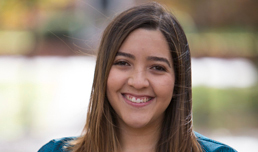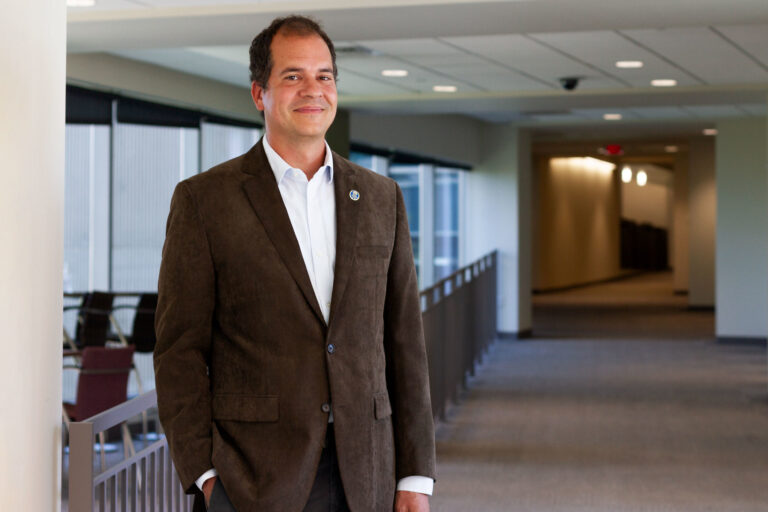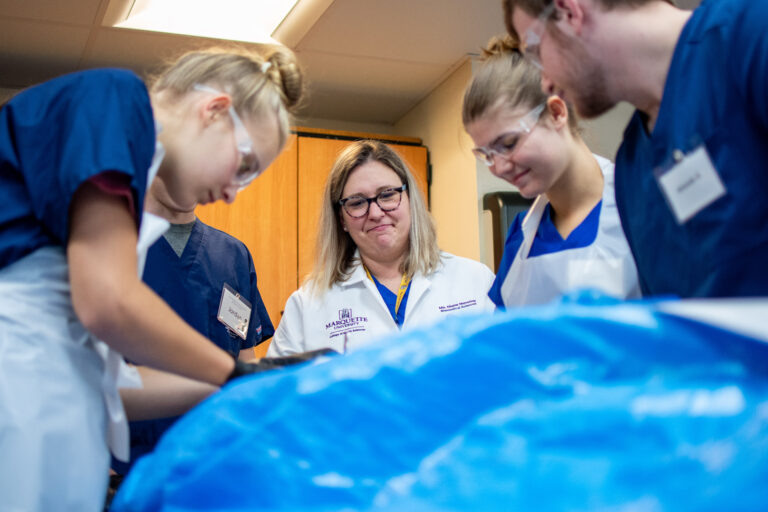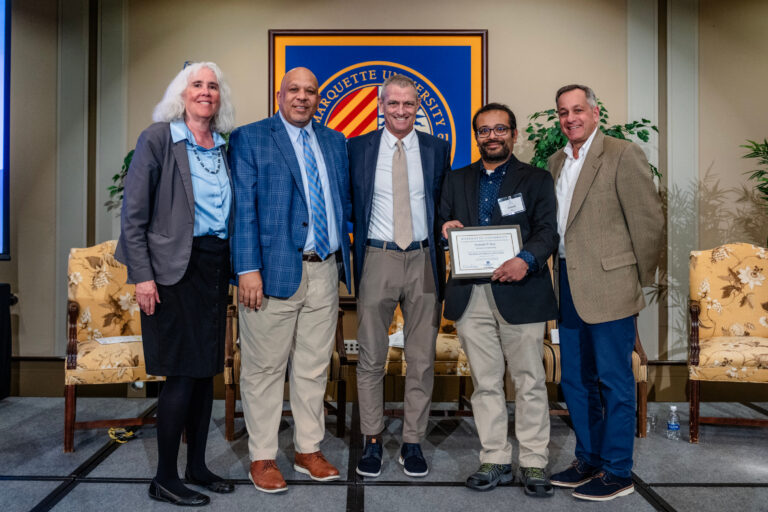By Dr. Ayleen Cabas-Mijares, assistant professor of journalism and media studies in the Diederich College of Communication
Dr. Cabas-Mijares teaches a Social Justice Reporting class that asked students to cover February’s Justice in Action Conference
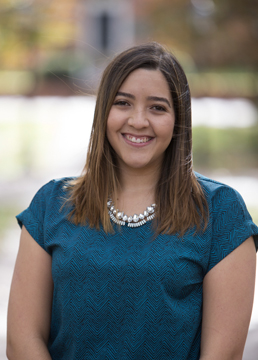 Braving slippery roads on a frigid February morning, Marquette students, faculty and staff joined the movers and shakers of Milwaukee to talk about social justice. The Justice in Action (JIA) conference program promised difficult conversations and glimpses into the world of those who refuse to accept the status quo and strive to transform their communities. That Saturday was all about walking the walk.
Braving slippery roads on a frigid February morning, Marquette students, faculty and staff joined the movers and shakers of Milwaukee to talk about social justice. The Justice in Action (JIA) conference program promised difficult conversations and glimpses into the world of those who refuse to accept the status quo and strive to transform their communities. That Saturday was all about walking the walk.
The anticipation was palpable. Attendees checked and rechecked their schedules and debated which workshops to attend. A cloud of excited whispers followed keynote speaker Melody McCurtis as she sought the auditorium. A couple of Afro-Latina students looked around the packed halls and exclaimed: “Mira a toda esta gente!”
And then, there was this group of students talking quietly with a game face on. They had been preparing for this conference for days. They knew where to go, they had questions ready, and they were equipped with notebooks, phones and cameras. They are journalism students enrolled in this new class titled Social Justice Reporting. My class.
For weeks, my students and I have been talking about how to engage in non-extractive reporting that gives the full story of minoritized communities: Stories that reflect the injustice that marks their (our) experience but also their wisdom and resourcefulness. In that classroom, we talk about solidarity and seeing people as collaborators not mere informants. Importantly, we debate how – not whether – we can take a stand as journalists against people and systems that undermine people’s ability to lead a dignified life. In short, we explore how to turn journalism into an instrument for justice.
Yes. We have the conversations that make editors and reporters spoused to the flawed and problematic value of objectivity gasp. That’s alright. Many will keep on cringing eternally. At Marquette’s department of journalism and media studies, however, we are in the business of crafting a better and more responsible journalism. So, of course, my students had to cover the JIA conference and examine stories of injustice and activism in Milwaukee. The articles and videos in this series address complex topics, such as the school-to-prison pipeline, mass incarceration, and the role of art and healing in resistance. They also highlight the organizations and programs at Marquette and beyond that have made an impact in marginalized communities in Milwaukee. The stories, I think, reflect my students’ commitment to truth and to action. So, let’s get to it. This is our take on Journalism That Matters.
Student stories from the Justice in Action Conference
- ‘Peace Room’ brings art, reflection to Marquette’s Justice in Action Conference by Lelah Byron
- This award-winning community organizer is looking for co-conspirators to uplift Milwaukee communities by Dr. Ayleen Cabas-Mijares and Maureen Dudley
- JIA reflections: allyship demands action by Emma Coffey
- “It’s more like a Prison than a School”: My experience trying to learn what it is like to go to an MPS school by Jackson Gross
- Educational programs used to help women integrate back into society by Rickiya Hatch
- Equitable education can prevent crime, recidivism by Alexa Jurado
- An Upstream Battle Against Centuries of Mass Criminalization by Timothy Littau
- Marquette and Milwaukee organizations offer opportunities for students to make a difference in their communities by Isa Kregel
- “Allyship is a Verb” — Marquette Helps Students to Turn Allyship Action by Julianna Marion Okosun
- A Second Chance: Project RETURN Helps the Formerly Incarcerated to Find a Better Life by Emily Sacco
- 400-Years of History in 40 minutes: JIA Conference Opens Discussion on Criminal Justice and Reform by Ben Schultz
- (VIDEO) Center for Leadership, Service and Involvement displays JIA posters. Andrew Amouzou shares how Paige Stoeffler and Mickey Marchio brought inspiration to poster boards while attending the Justice in Action Conference.
- (VIDEO) Students participated in the art expression project during JIA. The Black Student Council’s art expression project allowed art to serve as a form of activism during the Justice in Action conference. The protest signs that students created are on display in the Center for Leadership, Service and Involvement.
